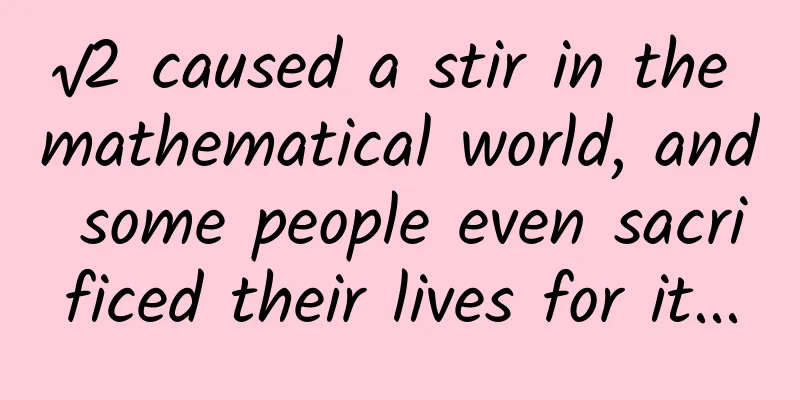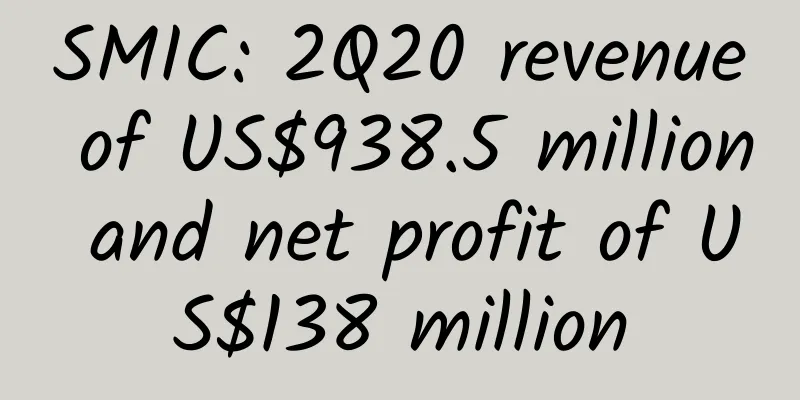√2 caused a stir in the mathematical world, and some people even sacrificed their lives for it...

|
I wonder if you have ever thought seriously about the following question: What is √2? You might ask, if there is no √2, the earth will still rotate, and we will still live our lives, right? Actually, at least in ancient Greece, there was a group of people whose lives would not be good. It was around 500 BC. There was a group of idle wise men around the Aegean Sea. They did not engage in production, but spent their days thinking about various big questions, such as the nature of the universe and the meaning of life. Pythagoras was one of them. Pythagoras He and his disciples believed that "everything is number", that is, the harmony of all things in the world can be explained and described by numbers. For example, when the length of the strings is a simple integer ratio, the harmony produced is the most pleasant. It should be noted that the "numbers" that Pythagoras and his group talked about are what we now call natural numbers, which are numbers like 1, 2, and 3 that we have learned to count since we were young. Everything in the world is nothing more than these numbers and their proportions! This is a belief that supports the Pythagorean school to continue exploring nature. Until one day, one of them discovered something incredible. This discovery comes from another great achievement of the Pythagorean school, which is known in the West as the Pythagorean Theorem - also known as our Pythagorean Theorem: If a right triangle has two sides of length a and b and a hypotenuse of length c, then: If we draw an isosceles right triangle with side length a = b = 1, we can immediately get The square of the length of the hypotenuse is equal to 2, so what? If I were Pythagoras, I would have said to myself: Let's find a fraction whose square is equal to 2! You can try to find it, or believe me, unfortunately, such a fraction does not exist. Assertion: There is no fraction whose square is equal to 2. (To distinguish between a "proposition" and a "theorem" in formal mathematics, we call an assertion a statement that is either true or false under intuitive understanding.) It was this assertion that directly destroyed the entire foundation of the Pythagorean school's beliefs. It is said that the student who discovered this was thrown into the sea, and the other disciples also had to swear to keep the secret. But as long as it is the truth, there will be a day when it will be discovered, it cannot be hidden. Today, √2 has become a very common symbol for us. So, why is the above assertion true? Why is it true? If we want to prove that a certain fraction exists, it is very simple, just find it. But how to prove that it does not exist? If we cannot find it after searching for a long time, it does not mean anything. We have to use logical reasoning to prove it! Proof of the above assertion: Suppose there is a fraction m/n whose square is equal to 2, where m and n are both natural numbers. Obviously, we can assume that they are not all even numbers, otherwise the common factor 2 can be eliminated. We have Note that the right side is an even number, so m squared is an even number, and m must also be an even number, let m = 2k. So Similarly, this shows that n is an even number. So, m and n are both even numbers, which is different from the fact that they are not both even numbers. There is a contradiction, so the assumption is wrong and there is no such score. This is a proof that has been passed down through the ages, brilliant and beautiful. To understand why this proof shocked and destroyed the Pythagorean school, let us continue to explore: No one would object to saying that this equation has no solution, but a square with a side length of one meter is real and tangible, and the length of its diagonal is a square equal to two! But we have proved that it cannot be a fraction, so what happened to the saying that everything is a number? ! Insight: The geometric properties of the physical world around us force us to acknowledge the existence of a quantity whose square is equal to two. Modern mathematics tells us that there are an infinite number of geometries, some of which hold true for the Pythagorean theorem and some of which do not. The former is called flat, and the latter is called curved. A big topic in modern cosmology is to answer whether our universe is flat or curved. It is true that our measurements on Earth show that the sum of the squares of the two sides of a right triangle is indeed equal to the square of the hypotenuse, but that may not be due to measurement errors. If we use a more accurate ruler, we may find that the two are actually not equal. In this case, the fraction of Pythagorean belief may be enough! But in any case, in flat geometry, the fraction is definitely not enough, and √2 exists. As far as I know, various experiments nowadays basically show that our universe is flat. Having said so much, I just want to make one thing clear—√2 does exist. Let's get back to the point. Since it's not a fraction, what exactly is it? If you answer that √2 is 1.414..., then I have to ask, is it 1.4142...? Is it 1.4142135624...? What does the ellipsis "..." mean? If you answer that √2 is a number whose square is equal to 2, then what is a "number"? And what is the square of a number? Here is a foreshadowing, and we will explain it next time... Reprinted from: Origin Reading Source: Unsolvable Equations: From Diophantus to Galois Author: Han Xu Editor: Guru |
<<: Friend, do you know how to barbecue?
Recommend
The misunderstood dispute between BAT and other small apps
Mini Programs are the last blue ocean of traffic ...
Is it expensive to develop the Lhasa Pet Mini Program? Lhasa Pet Mini Program Investment Fees and Process
How much does it cost to attract investment in th...
Case analysis: How to conduct operational data analysis
The article mainly outlines the methods and proce...
Beijing has another "textbook-style epidemic prevention"! This time the building was not even closed!
May 2 Official WeChat Account of Xicheng District...
Tik Tok game marketing example: downloads increased 40 times on iOS and 16 times on Android
Now more and more companies are paying attention ...
Analysis of 7 bidding methods for Baidu search OCPC
Baidu search ocpc bidding is the current mainstre...
Mobike Dies in a Million Ways from Innovation
During the turbulent times of the subsidy war, Wa...
The walking stick has become a hidden camera weapon. People wearing skirts should be careful.
Zhao Xiaohong is a senior employee of a foreign co...
Is it necessary for Zhaoqing flower shop to develop a mini program? Why do we need to create a flower mini program?
For flower shop owners, offline channels can no l...
Guangzhou Mini Program Financial Functions, What Should We Pay Attention to When Developing Mini Programs?
Nowadays, the development of the financial market...
Cancer is scary? Cardiovascular disease is scarier than cancer. 10 dietary suggestions to help you reduce your risk
Many people may often see news about sudden death...
Global new discovery No. 1 in 2022!
The Henan Provincial Bureau of Geology and Minera...
Multiple cases of hemorrhagic fever have been found in Xi'an. Can we still eat strawberries?
The day before yesterday, Xi'an News Network ...
Inventory of low-cost traffic-generating methods, 4 major rules!
This article briefly summarizes the three major t...
How to prevent phishing? Learn more about phishing in one article →
Fish bite because they are greedy, why do you cli...









